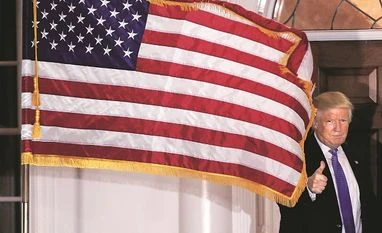The main US visa programme for technology workers could face renewed scrutiny under President-elect Donald Trump and his proposed Attorney General, Senator Jeff Sessions, a long-time critic of the skilled-worker programme.
H-1B visas admit 65,000 workers and another 20,000 graduate student workers each year. The tech industry, which has lobbied to expand the programme, may now have to fight a rear-guard action to protect it, immigration attorneys and lobbyists said.
Trump sent mixed signals on the campaign trail, sometimes criticising the visas but other times calling them an important way to retain foreign talent.
Sessions, however, has long sought to curtail the programme and introduced legislation last year aiming to make the visas less available to large outsourcing companies such as Infosys. Such firms, by far the largest users of H-1B visas, provide foreign contractors to US companies looking to slash information technology costs. “Thousands of US workers are being replaced by foreign labor,” Sessions said at a February hearing. A spokesperson for Sessions did not immediately respond to a request for comment. A Trump transition team spokesperson declined to comment. The H-1B visa is intended for specialty occupations that typically require a college education. Companies use them in two main ways to hire technology workers. Tech firms such as Microsoft and Google typically hire highly skilled, well-paid foreign workers that are in short supply. They help many of them secure so-called green cards that allow them to work in the US permanently.
By contrast, firms such as Infosys and Tata Consultancy Services, both based in India, use the visas to deploy lower-paid contractors that critics say rarely end up with green cards. Infosys did not immediately respond to a request for comment.
)